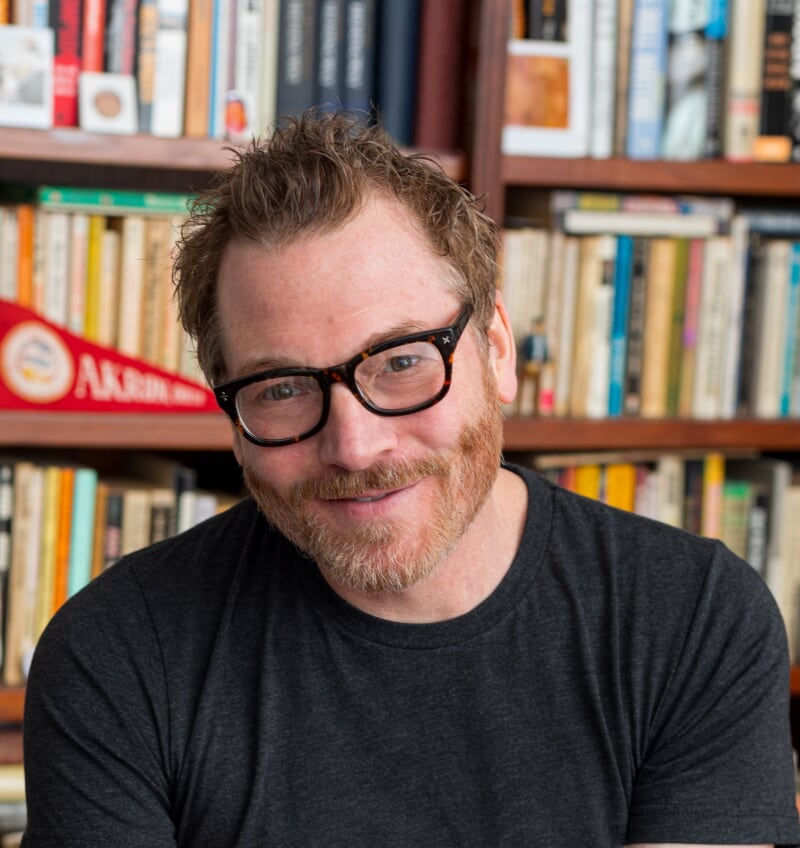
Kaitlyn Finchler
Staff writer
Every writer has an origin story.
In the case of David Giffels, he was a shy, introverted teenager-turned-newspaper-columnist-turned-professor and author. Throughout the course of his life, he has found his place in the world through writing.
Giffels, Week Seven’s prose writer-in-residence for the Chautauqua Writers’ Center, will deliver his Brown Bag lecture, “Writing When (You Think) You Have No Ideas,” at 12:15 p.m. today on the porch of the Literary Arts Center at Alumni Hall.
“There’s an element of curiosity in both readers and writers about the notion of ideas,” he said. “The purpose of the talk is to debunk the idea that there are no ideas.”
Giffels, the author of six nonfiction works, is an English professor at the University of Akron, where he teaches creative nonfiction in the NEOMFA program. Before teaching, he worked as a newspaper columnist where he had to generate ideas for, and write, three columns a week.
“The job is to figure out how to come up with good ideas,” he said.
There’s mystery in writing, he said, because some people who are readers — and not necessarily writers — might want insight into how the process works.
“I’m always fascinated by how other writers work with their processes,” Giffels said. “This kind of shows the nuts and bolts of generating ideas, or making something out of something that doesn’t seem like a very good idea.”
He implements this in his teaching as well, in both undergraduate and graduate classes. His “philosophy of teaching,” he said, is to understand where each writer stands, learn their goals and help carry them to that level.
“(Teaching at a) college gives me a lot of ideas of what works,” he said.
For the last five days, Giffels led the prose workshop, “Writing Your Way Home: Personal Nonfiction and the Personal Place,” where he taught the relationship between the personal essayist and their place.
He was “taught” his own place very quickly, learning that being a writer was not sitting in a room with your thoughts and automatically being creative.
“It’s learning how to engage with humans, how to understand other humans and communicate with them,” Giffels said. “I really needed to learn how that applied to being a writer.”
After he finished graduate school, Giffels said he got married, finished school and received a call from a friend at the Medina Gazette in Ohio and took the job. The forced interactions in journalism, he said, formed him as a writer.
“It gave me a sense of how human communication is the core of what writing really is,” Giffels said. “I owe everything to that chance.”




